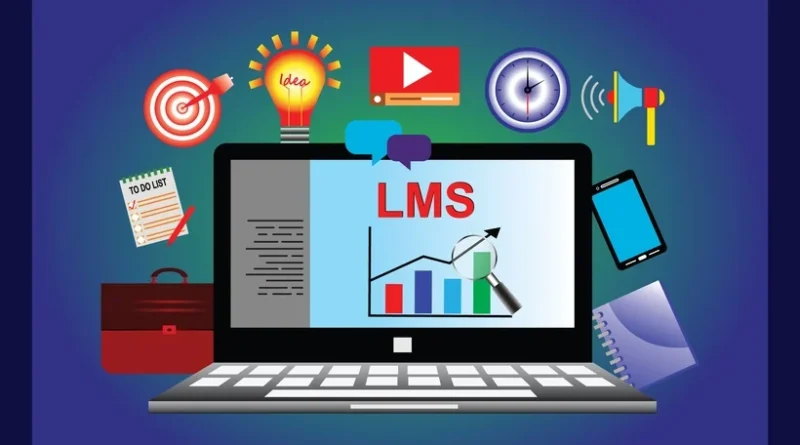Key Features to Look for in an Effective LMS for Business Success
In today’s fast-paced business environment, employee training and development are more important than ever. To stay ahead of the competition, organizations must equip their workforce with the right skills and knowledge. An effective Learning Management System (LMS) is a critical tool for achieving business success by providing a platform to manage, deliver, and track employee training. However, not all LMS platforms are created equal. To ensure that your business maximizes the benefits of an LMS, it is essential to choose a platform with the right features. This article highlights the key features to look for in an effective LMS that can drive business success.
Easy-to-Use Interface
One of the most important features of an LMS is its user interface (UI). A clean, intuitive, and easy-to-navigate interface is essential for ensuring that both administrators and employees can use the platform efficiently. If the LMS is difficult to navigate or requires significant training to use, employees may be discouraged from utilizing it. A user-friendly LMS helps improve adoption rates and allows employees to focus on learning rather than struggling with the technology. Look for an LMS that has a simple and modern interface with easy-to-understand menus and a seamless user experience.
Scalability and Flexibility
As your business grows, so will your training needs. A robust LMS should be scalable to accommodate an expanding workforce and a wide range of training programs. This feature ensures that businesses can continue to use the platform as they grow, without having to switch to a new system. Additionally, the LMS should be flexible enough to support various types of training content such as videos, e-learning modules, documents, and quizzes. Platforms like LMS offer a range of customizable options that allow businesses to create tailored learning experiences for their employees, whether they are new hires or seasoned professionals.
Mobile Accessibility
With the increasing use of smartphones and tablets in the workplace, mobile accessibility is a must-have feature for any modern LMS. Employees today expect to access training materials anytime, anywhere, and from any device. A mobile-responsive LMS allows employees to complete their training on the go, making it easier for them to integrate learning into their busy schedules. This flexibility ensures that employees can keep up with their professional development without disrupting their workflow. Mobile compatibility is especially important for businesses with a distributed workforce or employees working remotely.
Reporting and Analytics
Effective tracking and reporting are key components of an LMS that help organizations measure the success of their training programs. An LMS should provide detailed analytics on employee progress, completion rates, quiz results, and engagement levels. This data enables businesses to assess the effectiveness of their training programs, identify knowledge gaps, and pinpoint areas for improvement. A strong LMS will allow managers and administrators to generate custom reports that provide valuable insights into employee performance and training outcomes.
Gamification Features
Engagement is a significant factor in the success of training programs, and gamification is one way to enhance employee participation. Look for an LMS that incorporates gamification features such as badges, leaderboards, and rewards. Gamification adds an element of fun and competition to the learning process, motivating employees to complete courses and engage with the material. Employees are more likely to stay engaged and retain information when they feel rewarded for their efforts. By making learning interactive and enjoyable, gamification can increase course completion rates and improve learning outcomes.
Integration with Other Tools
An LMS should not exist in isolation; it must be able to integrate with other systems used by the organization. Whether it’s a human resources management system (HRMS), customer relationship management (CRM) tool, or payroll software, your LMS should seamlessly work with other tools to create a cohesive technology ecosystem. Integration capabilities make it easier to manage employee data, track performance, and streamline administrative tasks. This interoperability ensures that your business can manage its workforce more efficiently and reduce the need for duplicate data entry.
Support for Social Learning
Social learning features enable employees to collaborate and learn from each other. An effective LMS should provide support for discussion forums, peer feedback, and collaboration tools, allowing employees to share insights, ask questions, and work together on projects. Social learning fosters a sense of community and helps employees develop soft skills, such as communication and teamwork, which are critical for success in today’s workplace. By incorporating social learning into your LMS, you can create a more interactive and supportive learning environment.
Conclusion
Choosing the right LMS for your business is a critical step toward achieving business success through employee training and development. The right LMS should be user-friendly, scalable, mobile-accessible, and packed with essential features such as reporting tools, gamification, and social learning capabilities. By selecting a platform with these key features, businesses can enhance employee engagement, improve training outcomes, and ensure that their workforce has the skills and knowledge needed to succeed. With the right LMS, your organization will be well-positioned to achieve long-term growth and success.




